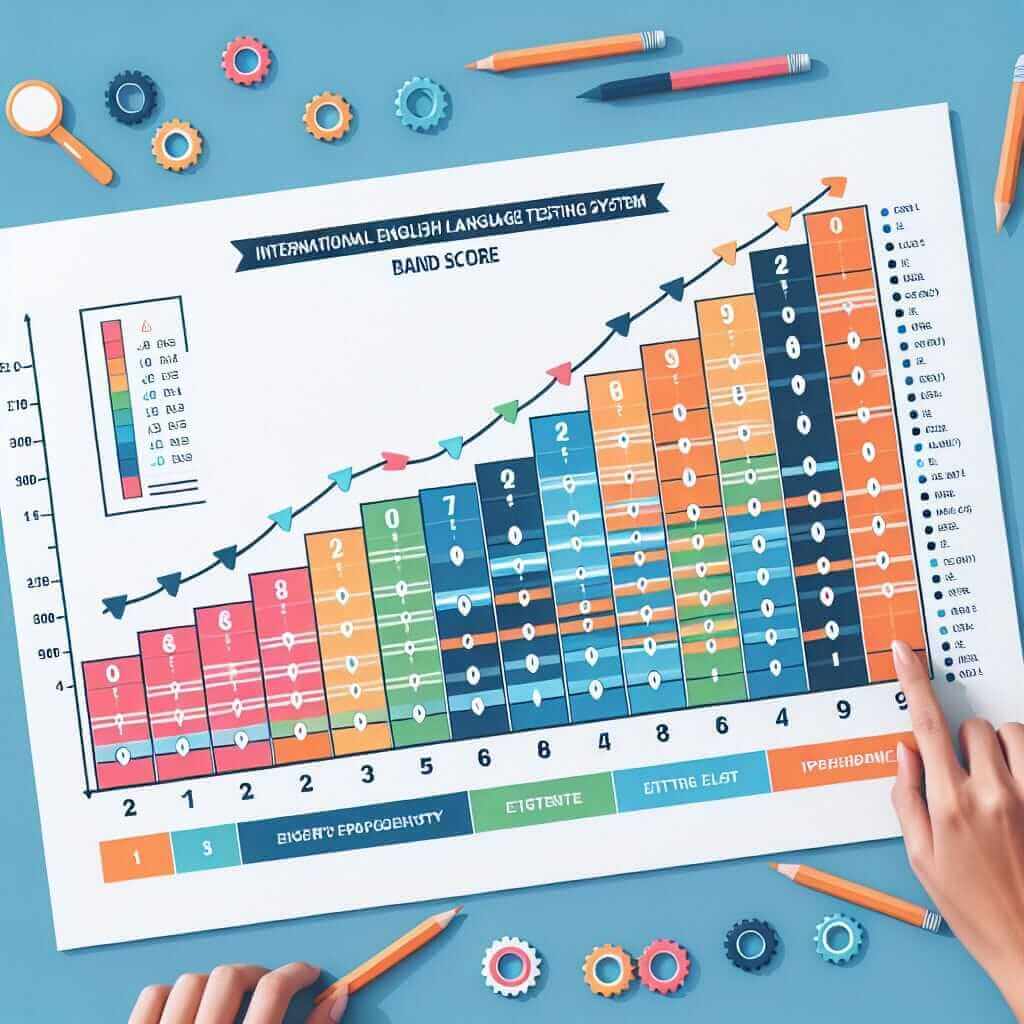The International English Language Testing System (IELTS) is a globally recognized English proficiency test that assesses your abilities in listening, reading, writing, and speaking. Achieving a high score in IELTS opens doors to academic and professional opportunities worldwide.
As an IELTS instructor with over 20 years of experience, I’ve guided countless students toward success in this exam. This comprehensive guide will provide invaluable insights and practical strategies to help you achieve your desired IELTS score.
Understanding the IELTS Exam
Before diving into specific strategies, it’s crucial to understand the structure and scoring of the IELTS exam.
IELTS Test Format
The IELTS exam is divided into four sections:
- Listening: This section comprises four recordings of native English speakers in various everyday situations.
- Reading: You’ll be presented with three long texts from books, journals, magazines, and newspapers.
- Writing: This section involves two tasks: summarizing information from a graph, table, or diagram, and writing an essay expressing an opinion or argument.
- Speaking: This is a face-to-face interview with a certified examiner, assessing your fluency, vocabulary, grammar, and pronunciation.
IELTS Band Scores
IELTS uses a nine-band scoring system to measure your English proficiency, with nine being the highest. Each section receives a band score, and an overall band score is calculated by averaging the individual scores.

Strategies for Success
Here are proven strategies to help you excel in each section of the IELTS:
Listening
- Practice Active Listening: Regularly listen to English podcasts, news broadcasts, and conversations to improve your comprehension skills.
- Focus on Keywords: Identify and pay close attention to keywords in the questions and audio recordings.
- Develop Note-Taking Skills: Practice taking concise and relevant notes while listening to lectures or talks.
Reading
- Improve your Reading Speed: Time management is crucial in the reading section. Practice skimming and scanning techniques to quickly identify relevant information.
- Expand your Vocabulary: Enhance your understanding of complex texts by actively learning new words and phrases.
- Analyze Question Types: Familiarize yourself with different question types, such as multiple choice, matching headings, and sentence completion.
Writing
- Plan Your Essays: Before you start writing, brainstorm ideas and create a clear outline to structure your essay effectively.
- Use a Variety of Sentence Structures: Demonstrate your grammatical range by using a mix of simple, compound, and complex sentences.
- Proofread Carefully: Allocate time to review your writing for any grammatical or spelling errors.
Speaking
- Practice Regularly: Engage in conversations with native English speakers or fellow IELTS candidates to improve fluency and confidence.
- Expand your Vocabulary: Use a wide range of vocabulary and idiomatic expressions to demonstrate your language proficiency.
- Maintain Natural Body Language: Project confidence through eye contact, appropriate gestures, and a positive demeanor.
Sample IELTS Speaking Questions and Tips
Part 1: Introduction & Interview
- What’s your name?
- Where are you from?
- Tell me about your hobbies.
Tip: Speak clearly and confidently. Provide detailed answers beyond simple “yes” or “no” responses.
Part 2: Individual Long Turn
You’ll receive a cue card with a topic and prompts. You have one minute to prepare and up to two minutes to speak.
Example Topic: Describe a memorable journey you’ve taken.
Tip: Utilize the one-minute preparation time wisely. Jot down key points and structure your response using cohesive devices.
Part 3: Two-Way Discussion
The examiner will engage you in a more in-depth discussion related to the topic in Part 2.
Example Questions:
- What are the benefits of traveling?
- How has technology impacted the way people travel?
Tip: Express your opinions clearly and support them with relevant examples. Demonstrate your ability to engage in a thoughtful discussion.
Conclusion
Achieving a high score in the IELTS requires dedication, effective preparation, and a strategic approach. By following the guidance outlined in this article, consistently practicing your English skills, and familiarizing yourself with the test format, you’ll be well on your way to achieving your desired IELTS score and unlocking a world of opportunities. Remember, confidence is key, so believe in yourself and your abilities. Good luck!